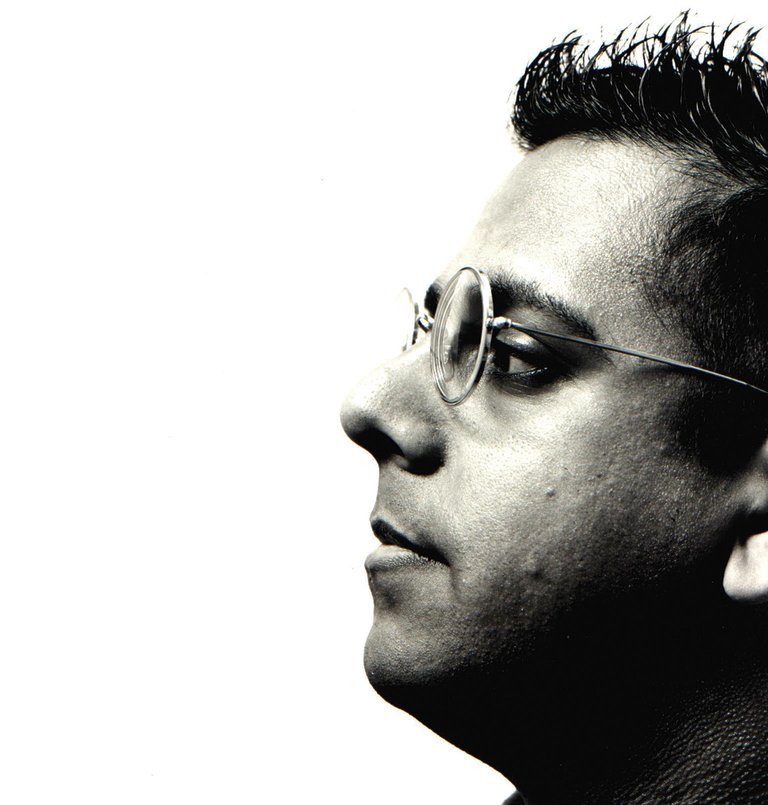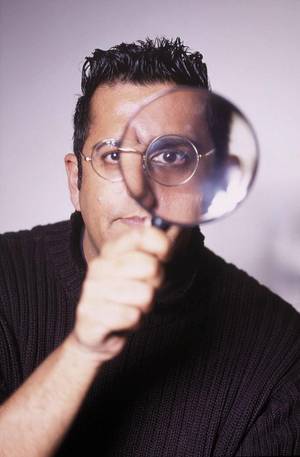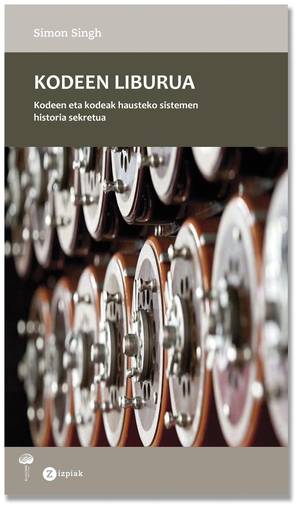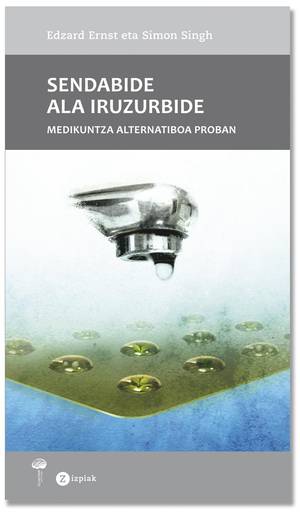"Encryption is in everything that surrounds us"

I think the main idea is that since we started communicating between us, either in writing, either through the telegraph, or perhaps through sending letters, we wanted to send important information or keep it in the documents. It can be sensitive, romantic, health-related information, related to a new invention, a military plan... When we have secret information, the way to protect it is to encode it. This question began many years ago. The theme of the book is the invention of different codes: people tried to break those codes, then tried to invent better codes, then also broke them, etc. To date. And today this topic has more importance than ever.
When we send an email there are two things. On the one hand, the message returns to a binary code or a computer language so that the computer itself can handle it. This coding facilitates communication for technology. On the other hand, the coding that interests me most is what makes it difficult for people to read the message. For example, we send messages and don't want to hide anything and have no secrets. But if I send my credit card information to an Internet library, I want the credit card details to be kept secret. I don't want anyone to steal data from me. Therefore, it is necessary to encrypt the details of the credit card to protect my bank account. I want to say that encryption is in everything that surrounds us: in financial transactions, on the Internet, in electronic transactions; the television programs that we see, sometimes, are encrypted by satellites and we must decode them; they encrypt the data of the analysis of our health to protect privacy.
--> Listen to the original interview in English or Basque on the website of the Norteko Ferrokarrilla program.
I think it is surely changing very fast because it is very technological and technology is changing very fast. When Internet started, we mainly sent messages, documents, etc. that are encoded with some ease. But now we send videos and videos have much more data, they need faster encryption, in greater quantity, so new challenges arise. The book, which was published in 1999, has passed since September 11 and has aroused the fear of terrorism. Current codes are more powerful than ever, so how are they going to break the codes of security services? How are they going to get information about people who want to weaken society? In part it is technological, partly mathematical, but also partly political. In the United States, it has been discussed for years about the need to regulate encryption. In practice this idea does not work because encryption is available to everyone.
I am a science writer, I am a scientific journalist and I write about many topics. I have written about mathematics, cosmology, health and cryptography. Many times people believe I am an expert in writing about a topic. When I write about something I like, of course, I know something about the subject, but my wisdom comes from conversations with experts. I learn a lot from them, but I don't consider myself an expert in cryptography. I would not recommend to anyone how to securely save your information. But yes, that is an error that someone can easily make.
Yes. The book deals with alternative medicine. And many people believe that we are against alternative medicine, because we are very critical. But I don't think we are against alternative medicine. On the contrary, we are supporters of the evidence. So when it is clear that something works, we say: "This is fine." When there is no such evidence, we say “be careful.” The problem of alternative medicines is that in most cases they have no favorable evidence. In addition, in some cases they are dangerous.
On the other hand, as he has said, after the publication of the book they denounced me for defamation, for an article I wrote about the chiropratics. The case lasted two years. It was very difficult, but in the end I won. I defended my article. I defended the criticism I made to the chiropractic. And that is important because it is to criticize the way science advances. Someone launches an idea; if I don't agree, I have evidence against or have another view, I have to be able to argue it. Otherwise, science, medicine, and technology cannot advance. And unfortunately in England we have very strict laws against defamation. They are laws very contrary to the person who criticizes and who position themselves very in favor of what is defended. I was very lucky. I could easily lose the lawsuit because defamation laws are not very fair. But it is good news that there is now a campaign to change the laws of defamation. We have a bill in Parliament. This month has arrived through the Lorden Chamber. And so we hope that soon, perhaps before the end of this year, we will have a new law of defamation; a law that accepts the criticism of the people, without an unjust critique, with a common sense, but that allows the debates of criticism to continue. In fact, the bill pays special attention to academic publications. If you publish in an academic journal -- a journal -- you will have special protection. Additional protection. This is because we want the law to recognize that the academic debate is very appreciated.
I think there are three types of people. There are people who will never convince, for example, to apply therapies. We will not convince your whole life because your careers and beliefs are involved in the world of alternative therapies. On the other hand, there are people who have a much more scientific point of view, like me, professional doctors.
But between these two groups there is a group of people who only seek answers. They don't care if the answer is alternative or conventional: they just look for answers. And I think the book is aimed at those people. That is, it is aimed at people who do not have an ideological vision. They want the best for their health and that of their families. I think our book is aimed at that group of people who are in the center. None of us have all the answers. But people want information and I hope our book will make it easier for people.
Buletina
Bidali zure helbide elektronikoa eta jaso asteroko buletina zure sarrera-ontzian














